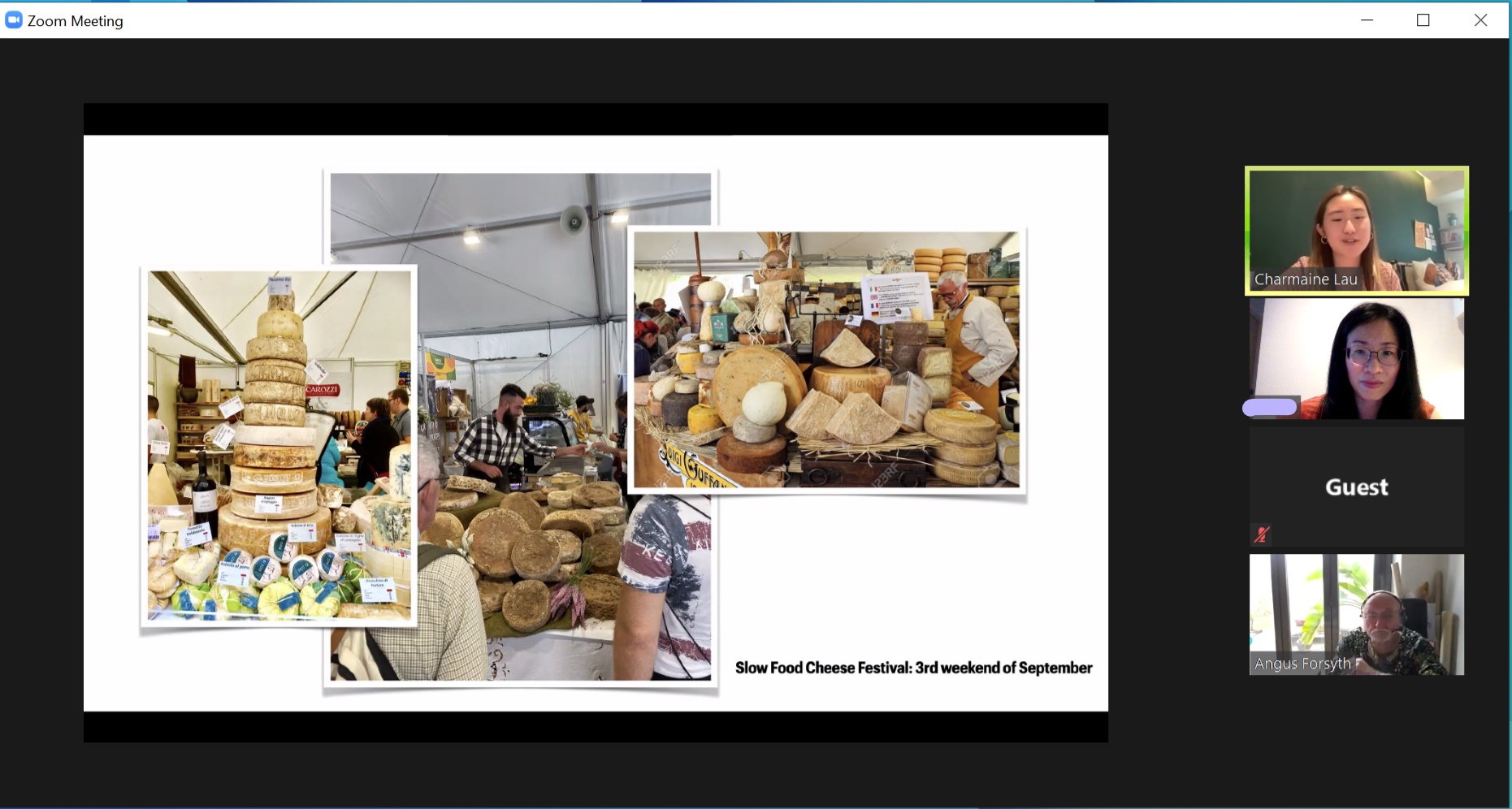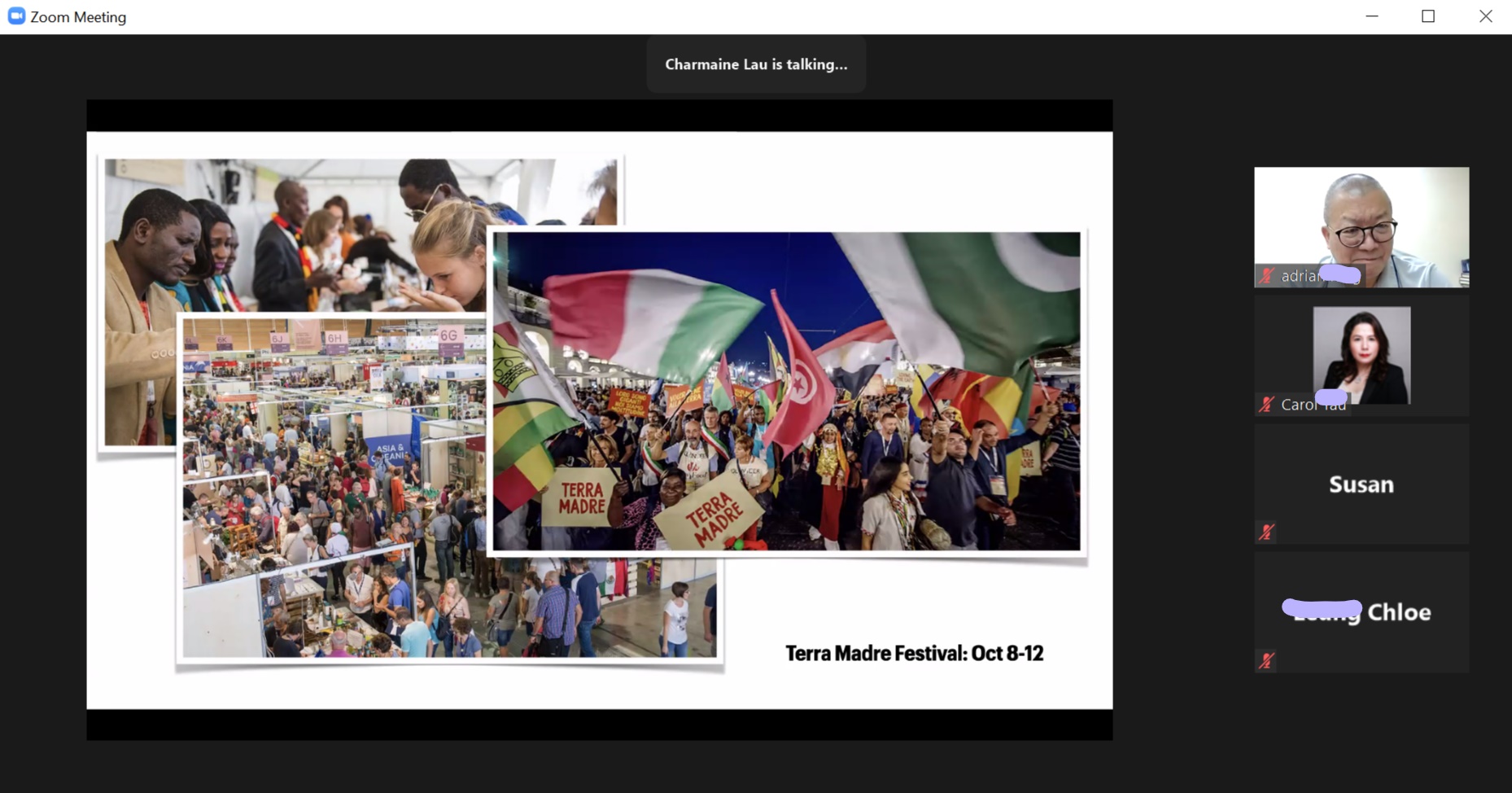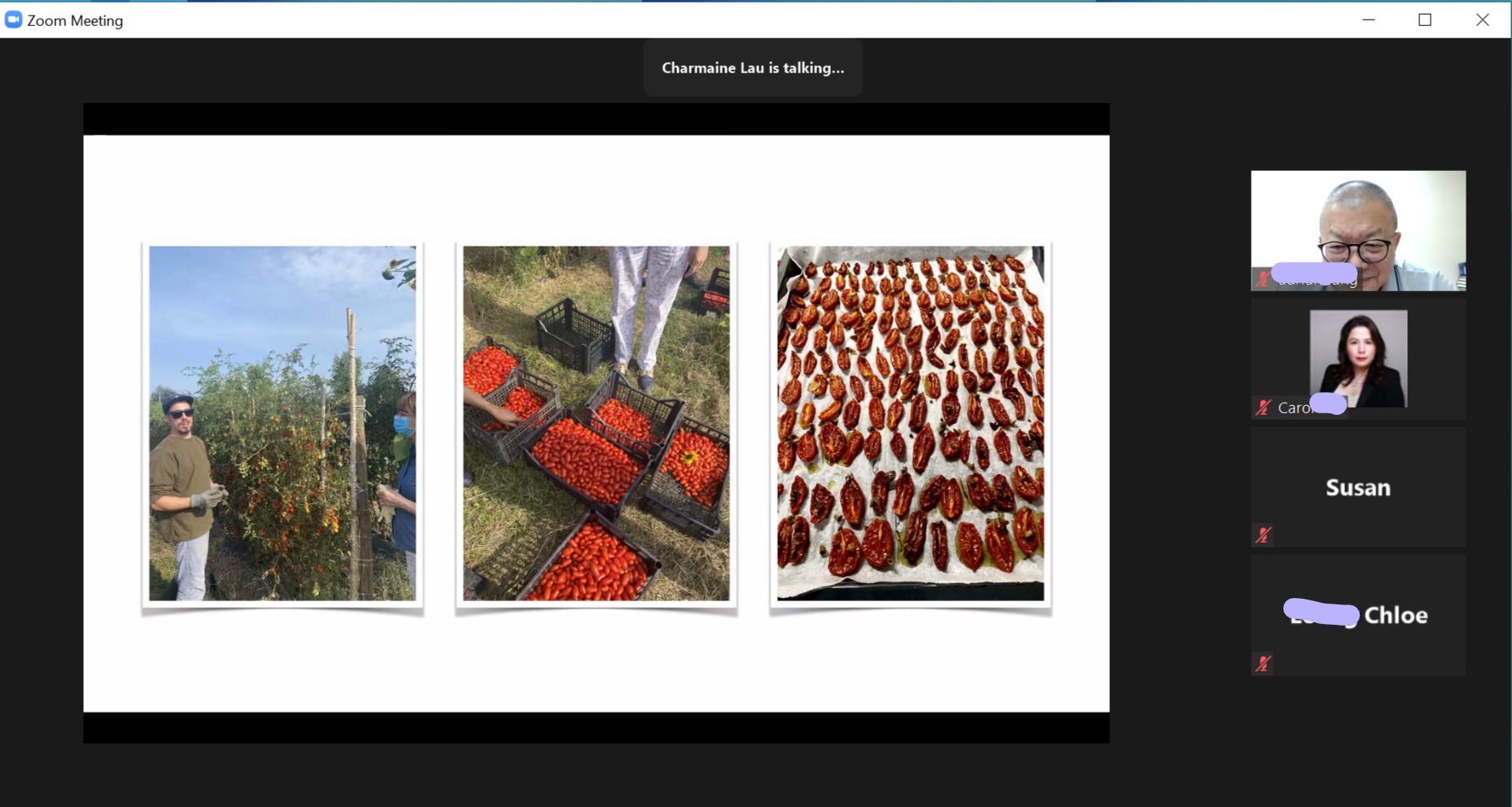Online Sharing: UNISG Experience
Article by Angus Forsyth

On the afternoon of Saturday, 20 March 2021, Slow Food Hong Kong was inspired by Charmaine Lau, a current masters degree student for “Master of Applied Gastronomy: Culinary Arts” at the University of Gastronomic Sciences, or l’Università degli Studi di Scienze Gastronomiche (UNISG). Charmaine had concluded her studies in the United States and was wondering what to turn her hand to next when a fellow student handed her a brochure published by UNISG. It looked so interesting that Charmaine did some research into UNISG and found that it is a university established by the Slow Food movement in Italy as a private university at the small city of Pollenzo in an area of Italy, which is celebrated for two principal consumables of which firstly the most famous is the Alba Truffle and secondly the Barolo wine production. (Apparently the Alba Truffles were first named as such in 1928.) Pollenzo is very near both Barolo and Alba in a rich agricultural part of Northern Italy.


In addition to the Truffles of Alba there is a famous cheese festival every two years. The other main festival in Pollenzo is the Terra Madre which is a huge food festival attended by food producers from worldwide and we saw a slide of the huge booth area with individual booths from many foreign countries all selling their own food production.


UNISG has both undergraduate degree courses and masters degree courses and Charmaine is now finishing her masters degree course. There are 20 to 30 students on each of the masters degree programmes and undergraduate attendance is between 100 and 200 undergraduate students. The students in Charmaine’s course are of 13 different nationalities and follow the course which is a multi disciplinary approach to food ranging through food science to the study and explanation of what happens to food during cooking. The basic emphasis on the courses is to teach a respect for food in basic language even to the extent that the word used in the courses for those who prepare food is “cooks” and not “chefs”.


We saw slides of the classrooms with broad bench attendance shifting to a line of independent cubby desk stations where students can focus on their independent notes on the taste of a particular food. We saw a slide of the food laboratory showing four big tables which encourages a collaborative aspect of learning with ovens lined along one wall and we moved the slide to the wine cellar with its own classroom where Charmaine informed us 100,000 bottles of different Italian wines are kept.

Charmaine was particularly interested to learn about “use of the whole animal” with particular reference to pigs and cows where and from which so many body parts are in fact delicious when prepared in various ways in their own right – a lesson she regards as a highly valuable introduction to the reality of total use of such an asset.
There are visiting lectures from famous mysterland star chefs who come to teach the students including well known names such as Ferran Adrià and Alice Waters.
Next to the school dining hall is a didactic garden where the focus is on the growing and preparation of herbs and we were given a series of slides of the drying of tomatos and a further focus on distilling food ingredients in order to extract real core of food taste as the essence of the raw food materials.

UNISG organizes study trips to other countries and at one time there was a two week trip to Barcelona in Spain to study the food of Catalonia and there are separate trips to farms, restaurants and wineries across Europe. Food factories are also part of the trip visiting programme which also include visits to coffee roasters and of course a visit to the famous production and storage of Parmigiano cheese. A further aspect of tuition at UNISG is to focus on the development of mould in food and the different effects which this can have on the development of food itself.
Charmaine confirmed that the cost per annum for the masters degree cost is EUR 16,000 a year which is the most expensive university tuition in Italy but is considerably cheaper than the equivalent masters degree tuition fees in the United States.

Me together with the host and other attendees of the session put a number of different questions to Charmaine, who fielded them very eloquently and it was agreed that the session had been one of considerable interest and worthwhile attendance.